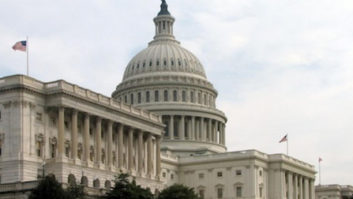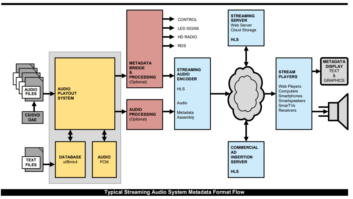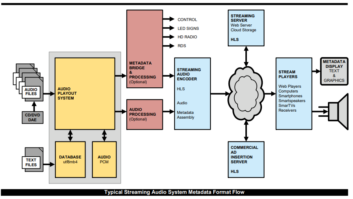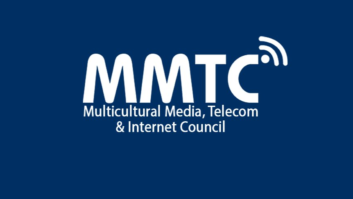The Senate Judiciary Committee has unanimously passed the Music Modernization Act.
The House has already unanimously passed similar legislation. It now moves on to the Senate, where it is expected to pass as well.
The bill is a carefully struck compromise that creates a framework for better compensating artists for digital plays of their music and making it easier for music rights organizations to collect those fees from distributors of streamed music, like Pandora and Spotify, as they do from traditional plays on TV and radio.
The legislation has been billed as the most significant change in music licensing laws in decades and has drawn praise from a chorus of stakeholders.
It actually incorporates a trio of bills. The base Modernization Act creates a single licensing entity for reproduction rights for digital uses, like those of Spotify, Pandora, Google, Apple and Amazon. It also randomly assigns judges to preside over ASCAP and BMI rate-setting cases, according to the Recording Industry Association of America (RIAA).
The package also includes The CLASSICS (Compensating Legacy Artists for their Songs, Service, and Important Contributions to Society) Act, which compensates artists for pre-1972 recordings, which had previously not been eligible for digital royalties.
Then there was the AMP (Allocation for Music Producer) Act, which allows for direct payment of royalties to music producers and engineers.
Music Rights Groups on Board
“We applaud the Senate Judiciary Committee for taking a major step today to finally update the outdated laws that currently govern the music industry and harm thousands of music creators by not properly valuing their work,” said the musicFIRST Coaltion. “Among them are generations of legacy artists who recorded songs before Feb. 15, 1972, and may finally get justice and fair compensation for use of their songs on digital platforms and satellite radio.”
National Association of Broadcasters president Gordon Smith said: “NAB strongly supports the Music Modernization Act. In particular, NAB applauds the inclusion of language in today’s managers’ amendment that ensures enhanced congressional oversight of the DOJ’s announced review of the ASCAP and BMI consent decrees.
“The framework provided by these decrees is essential to a functioning music marketplace and they were comprehensively reviewed just two years ago with the DOJ concluding that their continued existence is squarely in the public interest,” Smith added. “Any action to terminate these decrees must be preceded by Congressional action to ensure that songwriters, licensees and consumers will not be harmed.”
Copyright Alliance CEO Keith Kupferschmid said: “Today’s actions by the Senate Judiciary Committee continue to demonstrate the tremendous bipartisan support for this bill in Congress and amongst a diversity of stakeholders and industries. The bill has yet to receive a single ‘no’ vote in either the House or Senate, and continues to enjoy strong support from the music and technology industries, as well as from hundreds of thousands of creators and countless other friends of the creative community across the United States.”
National Music Publishers Association president/CEO David Israelite said: “Today’s vote is a huge step toward the Music Modernization Act becoming law. We are pleased that the MMA, as approved by the Committee, builds upon the fundamental compromise between music creators and digital services that will greatly benefit songwriters.”
Some Changes Still Needed
ASCAP CEO Elizabeth Matthews suggested changes were still needed, she said the group is “happy to see this legislation move forward with such broad bipartisan support.”
“While there is still more work to be done to create a fair environment for songwriters in the digital age, we hope the Senate will move swiftly to pass a version of this bill that preserves the much-needed benefits for music creators,” Matthews added.
“The Music Modernization Act grew stronger in the Senate and remains a bright, bipartisan light for an industry that is ready to stream forward to a better future,” said Digital Media Association CEO Chris Harrison.
Public Knowledge also urged the Senate to “continue to fix and improve the Music Modernization Act to rationalize the copyright system and protect historians, libraries, archivists and consumers.”
In particular, while the CLASSICS Act gives pre-1972 artists a federal right, it does not bring them within the “established system of federal copyright,” Public Knowledge said.
“Legacy sound recordings deserve the same protections as their modern counterparts,” said Meredith Rose, policy counsel at Public Knowledge. “This includes identical terms, limitations and exceptions to preserve the careful balance between rights of control, and rights of access and preservation, that Congress has attempted to preserve over the previous decade. Legacy artists are absolutely in need of relief after decades of abusive industry practices, but there is no rational reason for that relief to last an extra 50-plus years beyond the 95-year term provided for musical compositions and other copyrighted works.”












